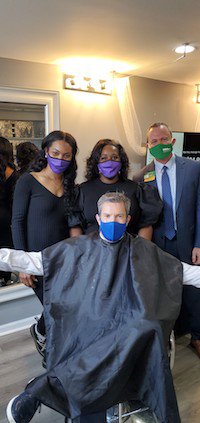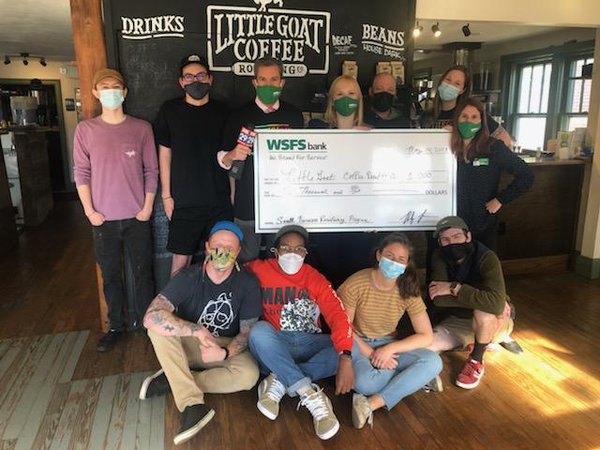Endure. Persevere. Adapt. Pivot.
These four words, and many more, describe thousands of small businesses in the Greater Philadelphia and Delaware region and what they did to survive when the COVID-19 pandemic’s impacts were felt.
To help recognize small businesses in the region that overcame the odds, WSFS Bank partnered with FOX 29 in May to launch the WSFS Bank Small Business Resiliency Program. Four small businesses were selected from more than 500 deserving nominations and were featured on Good Day Philadelphia.
Many of the operational changes made by small businesses during the pandemic are likely to remain part of their business models, as a WSFS Bank Business Survey in late 2020 found, and the Small Business Resiliency Program winners have all continued with elements of their changes even as restrictions ease and they are able to open up to full capacities.
From creating online workout videos and entering the e-commerce business to expanding menus and dining hours, these four WSFS Bank Small Business Resiliency Program winners quickly adopted new ways to serve their customers for years to come.
Lavish, A Jenée Chanel Salon

When they became business partners, Jenée and Turquoise committed themselves to helping women have healthy hair, something they both have dealt with personally. As Lavish grew, their customers came to rely on the hair growth serum they created.
But when they were initially forced to shut down, Jenée and Turquoise knew they had to act fast to pay the mortgage and keep Lavish afloat while also providing their customers with the products and services they needed.
They devised a strategy to bottle, package, and fulfill their hair growth serum for local customers, spending their days at the closed salon filling orders and setting a few pickup days per week.
This strategy proved so successful that they developed accompanying at-home products that have transformed their business from a local salon to a successful retailer with customers as far as Texas and California.
Little Goat Coffee Roasting
The COVID-19 pandemic proved to be a turning point for Little Goat Coffee Roasting’s owners, Joe Lins and Olivia Brinton.After having started Little Goat in 2017 at a local framer’s market with two dollars in savings, bucking the odds was something they were accustomed to.
So when the COVID-19 pandemic forced Joe and Olivia to close their over-the-counter retail business in Newark, Del. for six weeks, they pivoted to wholesaling the coffee beans they import and roast to local supermarkets and built an e-commerce site to sell beans directly to consumers.
These changes to their daily operations helped to cover expenses and avoid laying off employees, who helped fulfill online orders.
When they we able to re-open, Little Goat’s small indoor space was not able to serve customers, so they opened ordering and pickup windows, which have proved so popular and successful that they have become part of Little Goat’s main operations.
Annamarie’s Place
After being in business in Royersford, Pa. for 26 years, Annamarie Chestnut knew she had to prioritize two things when the pandemic hit: her team and her community.Having pivoted so quickly, Annamarie was “flying blind” when ordering food quantities but also knew local families were in need, so any food that was close to expiration was given away.
Annamarie’s team also rallied to create a Facebook coupon campaign that featured restaurants and other businesses that were able to stay open and serve customers, taking an “all for one and one for all” approach to navigating the pandemic, one day at a time.
Max Fitness
When his business was forced to close its physical location, Eric was ready. He encouraged clients to come to Max Fitness, socially distanced, to borrow dumbbells, kettlebells and other equipment to complete their “One Weight Workouts” at home, helping to make the videos a huge success and creating a new online community of Max Fitness clients and fans.
Eric continues to produce “One Weight Workout” videos every day for his clients who are not ready to return to the gym but want to continue their workouts and stay connected to the Max Fitness community.
Congratulations to all the WSFS Bank Small Business Resiliency Program winners!


